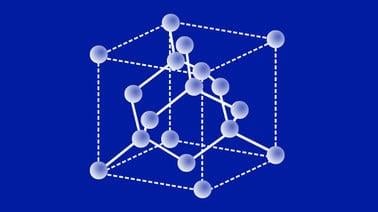MOOC List is learner-supported. When you buy through links on our site, we may earn an affiliate commission.

MOOC List is learner-supported. When you buy through links on our site, we may earn an affiliate commission.
The material will primarily appeal to electrical engineering students whose interests are in applications of semiconductor devices in circuits and systems. The treatment is physical and intuitive, and not heavily mathematical.
Technology users will gain an understanding of the semiconductor physics that is the basis for devices. Semiconductor technology developers may find it a useful starting point for diving deeper into condensed matter physics, statistical mechanics, thermodynamics, and materials science. The course presents an electrical engineering perspective on semiconductors, but those in other fields may find it a useful introduction to the approach that has guided the development of semiconductor technology for the past 50+ years.
Students taking this course will be required to complete two (2) proctored exams using the edX online Proctortrack software.
This course is part of the Nanoscience and Technology MicroMasters.
What you'll learn
Students will learn about the following specific topics:
- energy bands
- band gaps
- effective masses
- electrons and holes
- basics of quantum mechanics
- the Fermi function
- the density-of-states
- intrinsic carrier density
- doping and carrier concentrations
- carrier transport
- generation-recombination
- quasi-Fermi levels
- the semiconductor equations
- energy band diagrams
Among the important learning objectives, the course will introduce learners to the process of drawing and interpreting energy band diagrams. Energy band diagrams are a powerful, conceptual way to qualitatively understand the operation of semiconductor devices. In a concise way, they encapsulate most of the device-relevant specifics of semiconductor physics. Drawing and interpreting an energy band diagram is the first step in understanding the operation of a device.
This course material is typically covered in the first few weeks of an introductory semiconductor device course, but this class provides a fresh perspective informed by new understanding of electronics at the nanoscale.
Syllabus
Week 1: Materials Properties and Doping
Energy levels to energy bands
Crystalline, polycrystalline, and amorphous semiconductors
Miller indices
Properties of common semiconductors
Free carriers in semiconductors
Week 2: Rudiments of Quantum Mechanics
The wave equation
Quantum confinement
Quantum tunneling and reflection
Electron waves in crystals
Density of states
Week 3: Equilibrium Carrier Concentration
The Fermi function
Fermi-Dirac integrals
Carrier concentration vs. Fermi level
Carrier concentration vs. doping density
Carrier concentration vs. temperature
Week 4: Carrier Transport, Generation, and Recombination
The Landauer approach
Current from the nanoscale to the macroscale
Drift-diffusion equation
Carrier recombination
Carrier generation
Week 5: The Semiconductor Equations
Mathematical formulation
Energy band diagrams
Quasi-Fermi levels
Minority carrier diffusion equation
MOOC List is learner-supported. When you buy through links on our site, we may earn an affiliate commission.
MOOC List is learner-supported. When you buy through links on our site, we may earn an affiliate commission.
